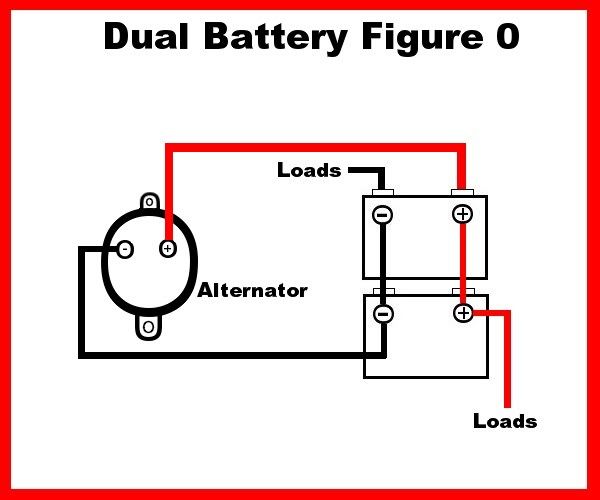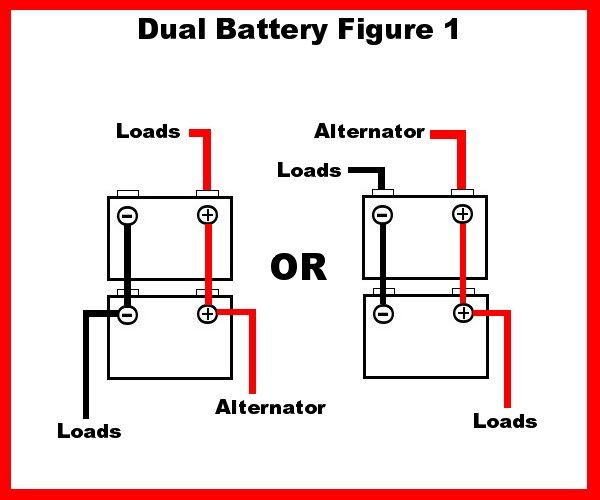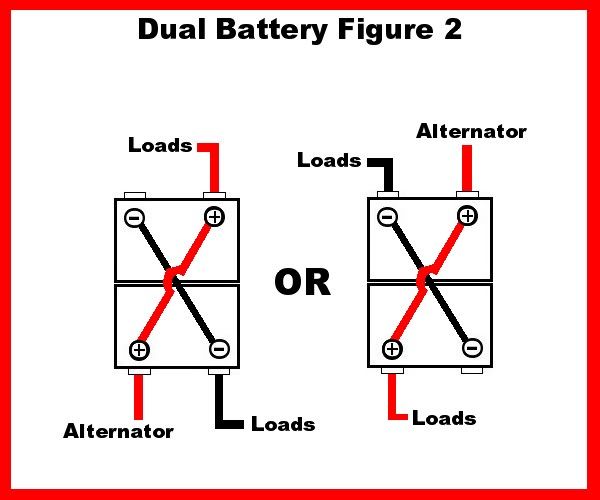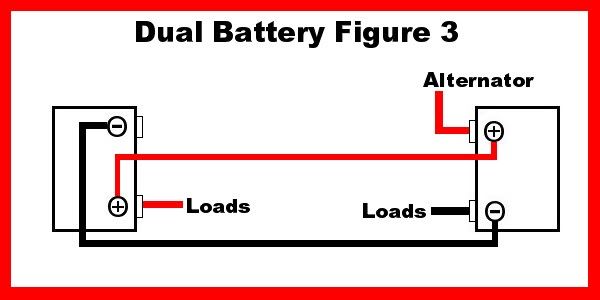TDubya
Sr. Member
I want to install dual batteries in my Bronco. Do any of the vendors offer a dual battery kit? If not, are there any good tech articles to be found? Thanks!








i did that so i could run all my power hogs off a 2nd battery like my winch and lights.. I have a 200 amp alt. going to a 200 amp battery isolator then that splits off to my 2 batteries.. for the 2nd battery i have a 160 amp circuit breaker between the isolator and the 2nd battery. This way if my lights or winch short out, it blows the breaker and i still have my main battery to start my motor.. Great and fail-safe design.
So Ray, if I understand you correctly you're saying the best system most of us could run ie; winching, lights, etc would be one of the above systems without any separator or isolator? Just wire the batteries direct? Would the 2 batts then always work to achieve "balance" between the two thus you'd never run into an "overcharging" problem with one of the batteries? Makes sense if this is what you're saying. I guess just make sure you don't winch BOTH your batts dead!
The idea of the isolater is that it isolates one battery from another. So if your winch shorts out, it will keep shorting until the second battery either explodes or is completely empty of power. Other words, you will be having a huge problem. The circuit breaker will protect the alternator from the draw, but not the other problem occuring.
The idea of the isolater is that it isolates one battery from another. So if your winch shorts out, it will keep shorting until the second battery either explodes or is completely empty of power. Other words, you will be having a huge problem. The circuit breaker will protect the alternator from the draw, but not the other problem occuring.
alt---- isolator----breaker----battery-----winch..
2nd battery will fry, blow breaker and protect the other battery..






